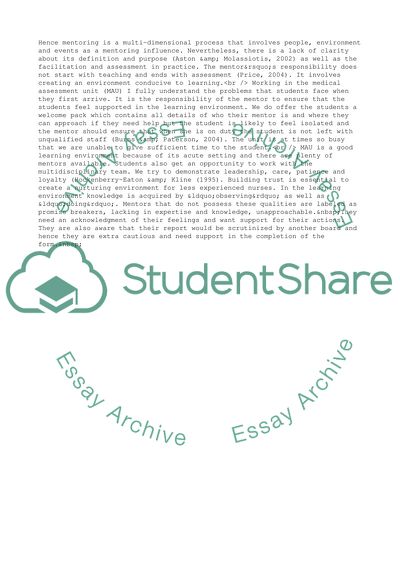Cite this document
(Mentoring in the Career Development Assignment Example | Topics and Well Written Essays - 2640 words, n.d.)
Mentoring in the Career Development Assignment Example | Topics and Well Written Essays - 2640 words. Retrieved from https://studentshare.org/business/1716723-reflection-on-role-as-a-mentor-in-practice
Mentoring in the Career Development Assignment Example | Topics and Well Written Essays - 2640 words. Retrieved from https://studentshare.org/business/1716723-reflection-on-role-as-a-mentor-in-practice
(Mentoring in the Career Development Assignment Example | Topics and Well Written Essays - 2640 Words)
Mentoring in the Career Development Assignment Example | Topics and Well Written Essays - 2640 Words. https://studentshare.org/business/1716723-reflection-on-role-as-a-mentor-in-practice.
Mentoring in the Career Development Assignment Example | Topics and Well Written Essays - 2640 Words. https://studentshare.org/business/1716723-reflection-on-role-as-a-mentor-in-practice.
“Mentoring in the Career Development Assignment Example | Topics and Well Written Essays - 2640 Words”, n.d. https://studentshare.org/business/1716723-reflection-on-role-as-a-mentor-in-practice.


